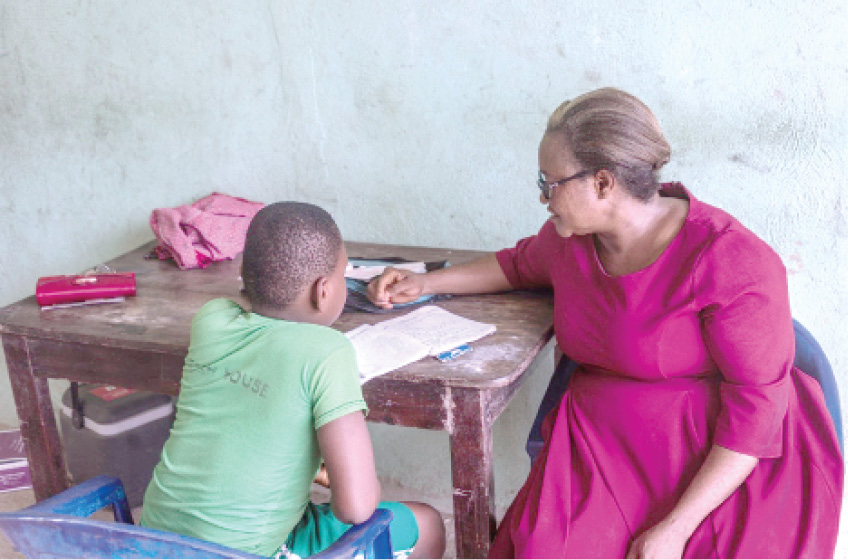Abused, exploited, abandoned – A Story of a Child’s Rough Path to Finding Home
When 11-year-old Kelvin (not real name) recounts his earliest memories of what he called home, it’s a mixed tape of cane lashes, chains and time spent in isolation. Living with his father and stepmother in Akamkpa, Cross River State, meant he always had to take the blame for every misfortune – a sick sibling or […]

Kelvin going over his school assignment with his foster mother, Mrs Egeh Ebe Uhara. © UNICEF Nigeria/2019/Owoicho
When 11-year-old Kelvin (not real name) recounts his earliest memories of what he called home, it’s a mixed tape of cane lashes, chains and time spent in isolation. Living with his father and stepmother in Akamkpa, Cross River State, meant he always had to take the blame for every misfortune – a sick sibling or missing item. That also meant spending many nights in The Diesel Room, as he puts it – a tiny dark room outside the main building where his father tries to force confessions out of him. His backside became familiar with sticks; his limbs, with ropes and chains; his eyes, with gloom.
“They were always accusing me of things I did not do. They would insult me, tie me up and beat me,” says Kelvin. “My stepmother even accused me of wizardry.”
It was not surprising that Kelvin ran away from the place he called home when he was barely eight years old. He found succour with his grandfather who sold goods in the marketplace. Grandpa gave him food, and a place to sleep. For Kelvin, that was more than enough. At least he had peace of mind, until that was snatched away from him when Grandpa died.
Kelvin’s Grandma, who lived in a separate home, would not take him in. She blamed him for all the misfortune that happened to her family. There was nowhere for Kelvin to turn to except the streets.
Living on the streets was a life of digging through waste bins for food and sorting through trash for recyclable materials to earn money. His bed was a concrete floor in an abandoned and uncompleted building – no doors, no electricity, no extra clothing.
In January 2017, Kelvin found light at the end of a harrowing tunnel when a woman who lived nearby found him wandering in the streets. The police was contacted, and they reached out to his parents. His mother responded to the call and showed up at the police station. It was with elation that Kelvin received the news – his own mother, whom he had not seen in years, was coming to take him home. But Kelvin’s mother declined, she did not want her child anymore because she was starting a family with a new husband.
Though Kelvin was crushed, he later found a new home away from his parents. With support from UNICEF and funds from USAID, social workers from the Ministry of Sustainable Development and Social Welfare in Cross River State provided assistance to place Kelvin in a foster home from where he now goes to school.
“My life is better now. I have things that I didn’t have before – mattress to sleep on, food to eat, and school,” said Kelvin. “I want to become a doctor when I grow up. I want to be able to help other people,” he said.
